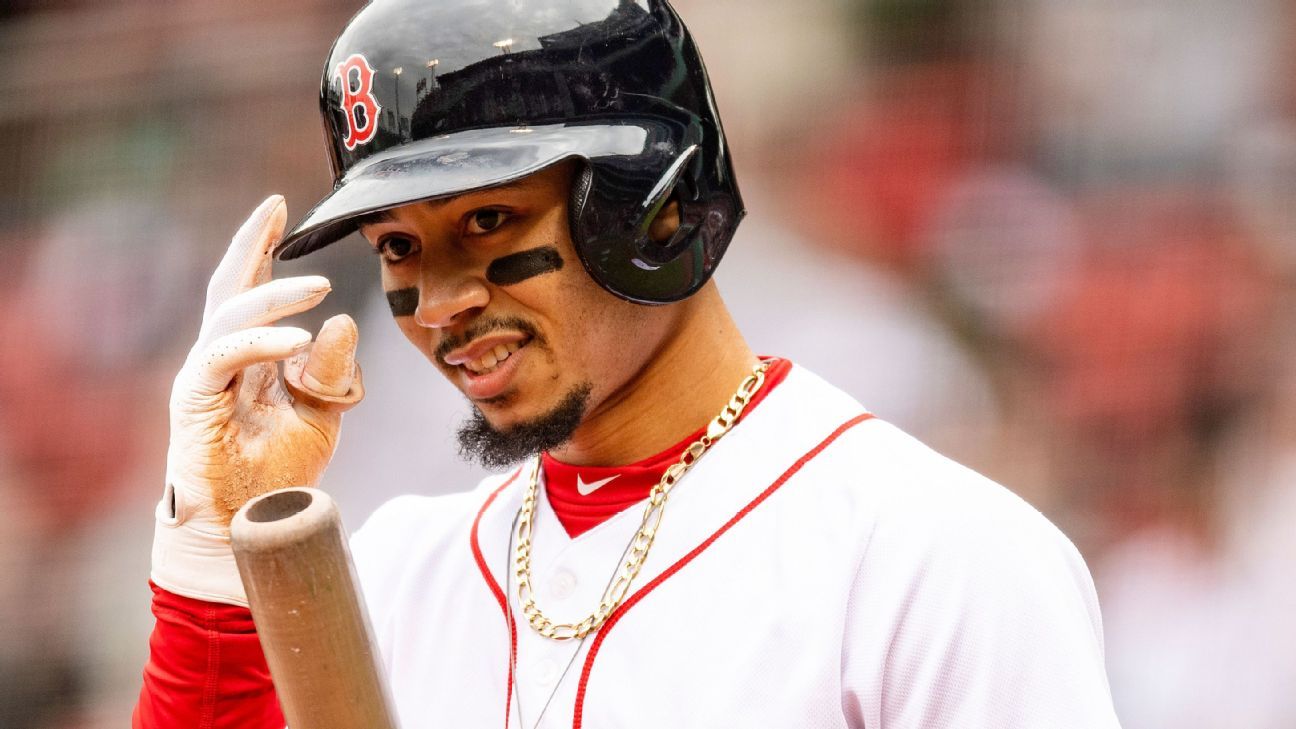The Dodgers are mad. You sensed it in the passive-aggressive statement they released on the night of Jan. 13, hours after the Houston Astros were punished for the illegal sign-stealing methods that helped them win the 2017 World Series. You sensed it, mostly, in their pointed words during the annual preseason gathering with fans, a typically cheerful event that no longer felt so upbeat.
Justin Turner expressed how difficult it was to believe the Astros “earned the right to be called champions.” In addressing Major League Baseball’s revelations, Dave Roberts said “frustrating is probably the floor of my emotions.” Ross Stripling bemoaned the fact that none of the players were punished. Enrique Hernandez, wearing Dodgers-colored sunglasses, called it “a shame” and cracked a joke about how proud he was of his team for winning a game at Minute Maid Park “where they knew every pitch that was coming.”
At one point, Hernandez made a distinctly optimistic statement with mock enthusiasm.
“It’s 2020 — a new decade,” he said with his best smile. “The ’20s are going to be the Dodgers’ decade.”
The Dodgers, dormant all winter, took a major step in that direction on Tuesday, by pulling off the most “right now” move of the Andrew Friedman era. They shipped off two pivotal, controllable players to the Boston Red Sox in exchange for superstar right fielder Mookie Betts, who will make $27 million in his final season before free agency. The Dodgers parted with Alex Verdugo, a talented young outfielder, and Kenta Maeda, a proven weapon for their rotation and their bullpen, and also agreed to take on a bulk of the $96 million remaining in David Price’s contract — all for one season of a player who might sign elsewhere next offseason.
And maybe he’ll be exactly what this team — this market — needs.
The Dodgers, mind you, didn’t need Betts. Not to win the pennant. Perhaps not even to win it all. Before this move, their roster — closely resembling the one that accumulated 106 regular-season victories last season — remained the greatest and deepest in the National League.
What they needed, though, was a spark coming off a deflating first-round exit in last year’s postseason. What they needed was an impact player who can single-handedly make the difference in October, a time of year when top-heavy rosters — like a 2019 Washington Nationals team with Max Scherzer, Stephen Strasburg, Patrick Corbin, Anthony Rendon, Juan Soto and little else — can make superior teams seem vulnerable. What they needed was a big name to shift the conversation away from what may or may not have happened 27 months ago, to help heal a market still reeling over the sudden death of Kobe Bryant, to make the immediate future seem a little bit more promising.
Friedman often chafed at the public perception that he didn’t place proper value on the present. He liked to state that the Dodgers had given up more prospects than any other organization since he took over as president of baseball operations in October 2014, with trades for Manny Machado and Yu Darvish the most glaring examples. He noted that the front office had previously offered nine-figure contracts that were simply rejected.
This offseason offered a snapshot. The Dodgers offered Gerrit Cole more than $300 million, but he instead chose the New York Yankees. They expressed interest in Rendon, but he had no interest in living in L.A. and instead signed with an Angels team that plays out of neighboring Orange County. At that point, Friedman shifted his attention to a trade market that remained stagnant until only recently, ultimately landing a player whom the Dodgers would have eventually chased in free agency.
In Betts, still only 27, and Cody Bellinger, a mere 24 years old, the Dodgers employ two of the game’s five best players in the same outfield, with Turner, Max Muncy, Corey Seager and Gavin Lux — the promising prospect they essentially refused to trade — filling out the rest of a dominant lineup. (Left-handed-hitting outfielder Joc Pederson was subsequently dealt to the Angels for young middle infielder Luis Rengifo, a move that would make A.J. Pollock the everyday left fielder and help the Dodgers get below the luxury-tax threshold.)
An offense that led the NL in on-base percentage, slugging and homers in 2019 has added a player with a .302/.374/.524 slash line, 134 home runs and 119 stolen bases over the past five years. A defense that led the majors in defensive runs saved has added someone who won a Gold Glove Award after each of the past four seasons. A wounded team in a wounded city has been infused with a ray of light.
On Saturday, in his first public comments since MLB punished the Astros, Roberts was asked if he has found himself looking back to the tight, back-and-forth, seven-game World Series from 2017 and wondering what could have been.
“I think we’ve all been sort of guilty of that,” he said, “but it’s a rabbit hole that really isn’t going to change the past.”
Nothing — not a vacated title, not a string of consecutive championships — will erase the agony of coming up short that fall. The Dodgers found a way back to the World Series the following year and lost in five games to a Betts-led Red Sox team that is under investigation for similar, albeit milder, crimes. But that Astros loss stung differently. That pain will endure.
This was about creating better memories.
